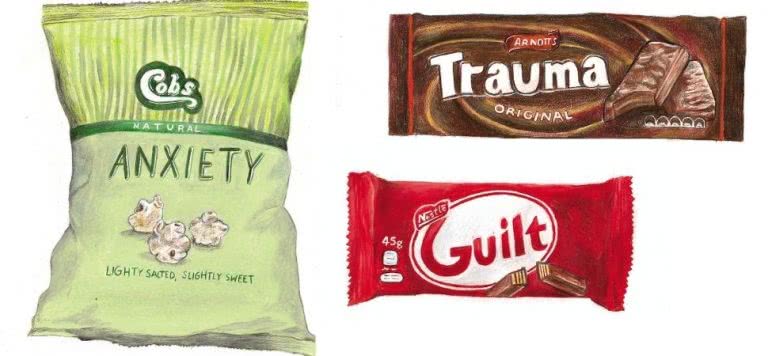Disclaimer: Before we begin I’d just like to confirm, this isn’t some kind of kick-lit article about recovery and the benefits of Overeaters Anonymous, also known as OA. Some of the most wonderful people I know are addicts and every journey to recovery is different. And just because programs like OA are the most well-known and most recommended option, it doesn’t mean they’re right for everyone.
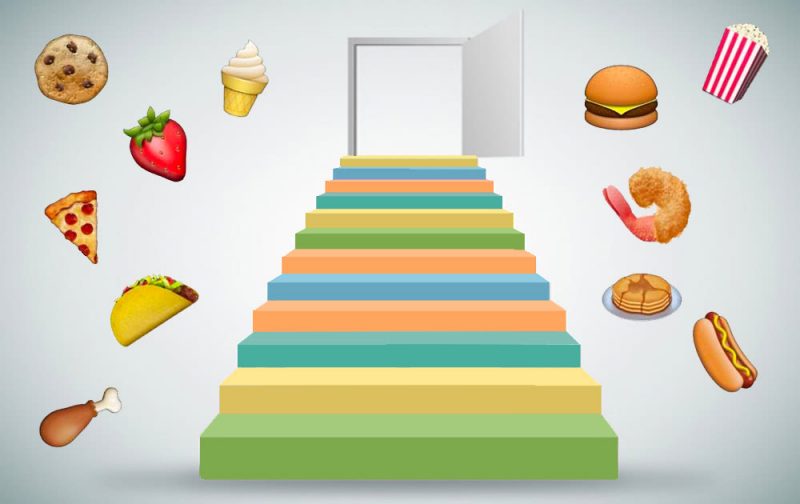
I downed a bag of chips on my way there. And as I licked the salt from underneath my fingernails my first thought was, ‘What can I eat next?’
To be completely honest, the only reason I decided to go to an Overeaters Anonymous (OA) meeting was because it was a three minute walk from a place that sells the chips I like. The irony isn’t lost me. It’s like having phone sex with a former lover before you head to church with your wife, or drinking yourself into oblivion before you donate a kidney.
I’m not obese. I’m not even considered medically overweight. Perhaps that’s why it’s taken me so long to admit fault. My issues with and dependence on food have become unmanageable (Step One: tick.)
It’s my first and most intense love. It’s always there for me; it comforts me; it eases my stress and gives me something to look forward to. It’s the last thing I think of when I go to sleep and the first thing I think of when I wake up. Yet, you’d never know just from looking at me.

Let me offer you a glimpse into this obsession of mine: If you and I were sharing a meal, and I didn’t get the lion’s share, I would feel unsatisfied and frustrated with you. My memory of our time together would be a tunnel vision view of the food and how my portion compared to yours, our conversation demoted to background noise.
But I didn’t just Google OA meeting locations, grab my packet of chips and go on my merry way. It took 20 years of denial, the inhaling of every page on the OA Sydney website (did you know Overeaters Anonymous has approximately 6,500 meetings in over 80 countries?), many nights of intense self-loathing and abuse in the form of binges – further abuse in the form of over-exercise – and as mentioned, the fact I could reward myself with my favourite food following the meeting.
Below are a few of the 15 questions published on the OA website:
Do I eat when I’m not hungry, or not eat when my body needs nourishment?
Do I go on eating binges for no apparent reason, sometimes eating until I’m stuffed or even feel sick?
Are there certain foods I can’t stop eating after having the first bite?
Have I ever eaten food that is burned, frozen, or spoiled; from containers in the grocery store; or out of the garbage?
Perhaps the questions are posted as a wake up call for those in denial. Perhaps they’re a test to see if OA really is for you.
I answered yes to every single one of them.
I was scared when I walked through the doors. My heart was racing as I followed the signs up the staircase – ‘OA Meeting This Way’. I felt like passers-by could see the shame and fear on my face as I slowly scaled the stairs. ‘No willpower’ they were thinking. ‘Do you seriously have no self control?’ ‘What a privileged and selfish addiction you have.’
I took one of those anachronistic ‘only in Downtown Abbey’ deep breaths when I walked in. It usually helps the protagonist, I thought. When I opened the doors it was nothing like I had expected: a quitterati of sorts, all facing a lone lectern which they’d grace one-by-one for a timed speech.
Instead it was four people; three women and a male with the kindest eyes you ever saw and a mixed energy of hope and despair.
Ellen* spoke first. She followed the rules of a ‘newcomers meeting’ where she took me through three things: what it was like before OA, what it’s like now, and what she did to put down the food and maintain abstinence. Speaking with her eyes closed, then downcast, she said she’s attended a meeting almost every day for the past 18 years, that it saved her life; that it helped her process the root cause, childhood trauma.
Clinton* spoke next. Talking through the grey curtain of his long, rather incredible, hair, he said he was a poly-addict. He was celebrating an eight-month streak of no McDonald’s – that was his binge food. We all have them apparently, and in OA they’re to be completely avoided.
He then outlined what was involved in the OA program – the fact there were 12 Steps, 12 Traditions, the Nine Tools of Recovery, and multiple books of literature specifically created for those involved.
The best part was when he explained the community of OA, the fact they were all there to help, would never judge, and that this was a safe space. He smiled sweetly at me after and that felt really nice.
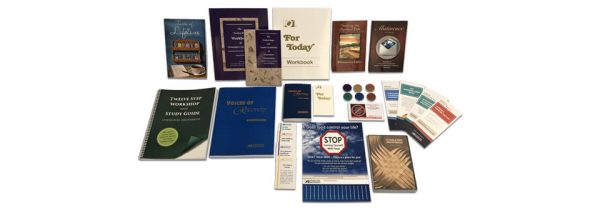
Mary*, who chaired the meeting, had been in the program for a year after what she called a 50-year losing battle with compulsive overeating. Glancing over at me as she shared, perhaps to make me feel included, perhaps sensitive to any reactions, she talked about her hidden stash of chocolate and lollies, and how the first 15 minutes of overeating were great, but it was just self-destruction after that. And the way she was able to lose 25kgs in a month only to put it all back on just as quick.
“One thing I do know, is that if you just do the program, do the program, do the program, then it actually works,” she finished.
I saw myself in all of them. The shameful habits they talked about, the self-abuse that was binge-eating, and the voice that told me to keep going when the food was literally being stacked inside my esophagus. The voice that I listened to because it sounded just like me. The voice they would later tell me was the disease talking.

It was Sandra* that I identified most with. She said there’s an OA saying, “one is too much, 1000 is never enough”. She said her food obsession began in her childhood when she would wake up before dawn to steal biscuits from the tin.
She spoke with the hypnotic cadence of an Oscar Wilde poem. She said she had trouble with the three letter word that’s needed to complete Step 2: ‘Came to believe that a Power greater than ourselves could restore us to sanity.’
She said it was hard for her to join in on the Serenity Prayer at each meeting, but that eventually she found a higher power within herself that pulled her through.
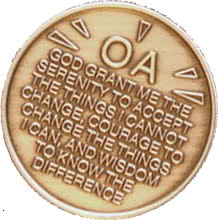
Until now I had felt a shame that had hardened and calcified; like I was the first and only person to carry a dark secret like this. And that in a world of excess and in a lucky country like Australia, I had found a way to abuse my privilege and tell it it wasn’t enough.
“My name is Poppy and I’m a compulsive overeater…”
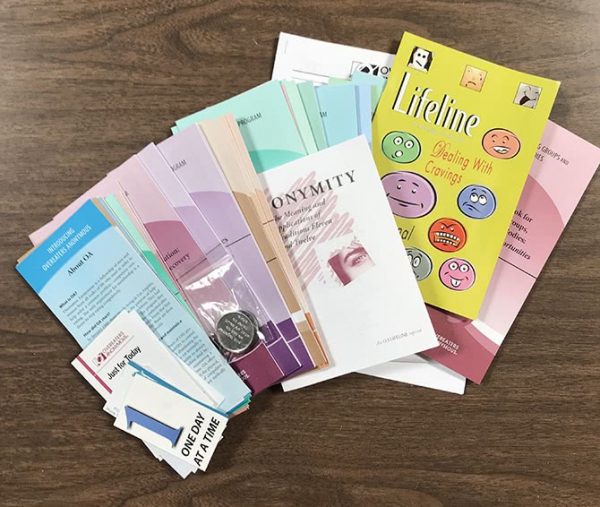
The fable behind the AA phenom (which OA is based on) reads like a Dickens novella. Founded by stockbroker Bill Wilson, and surgeon Bob Smith in Ohio in 1935 (could it get any more white?), it includes confessions and pledges written in the pages of the family bible, years of detoxing under the watchful eyes of the medical elite and an actual revelation where Bill saw God and promised to turn his life around.
What I imagine would have been largely ‘anonymous’ back then in its beginnings – what with all the shame related to anything enjoyable and of course the missing advent of the internet – now feels like some half-arsed tip of the hat to the days of old.
Granted each meeting features a sign that reads: ‘what you see here, what you hear here, let is stay here’, but countless recovery memoirs have been released on the subject, even more articles like this one, and milestones publicly celebrated – just ask Eminem.
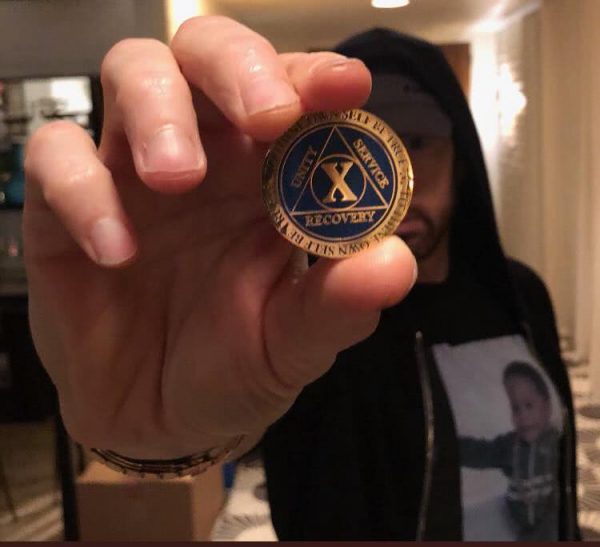
It’s been six weeks since I first stepped into an OA meeting. I’ve been to many meetings since. I’ve struggled with questions like, ‘Is this not the blind leading the blind?’, ‘Could this bring up trauma I’m not ready to cope with?’, and ‘If so-and-so still relapses after 26 years in the program then what hope is there for me?’ But I’ve also had ah-ha moments and emotional breakthroughs too.
OA may not stick. I might get to the end of the year and decide it’s not for me. I may also have fallen deeper into the annals of food addiction and feel more hopeless than before. Right after that first meeting though, something shifted in me.
I walked past the shop that sells my favourite chips, and into a local store to buy vegetables for a soup. Things felt different.
*Real names have been withheld.
If you or someone you know is struggling with addiction, visit please call Lifeline on 13 11 14 or visit www.lifeline.org.au/































